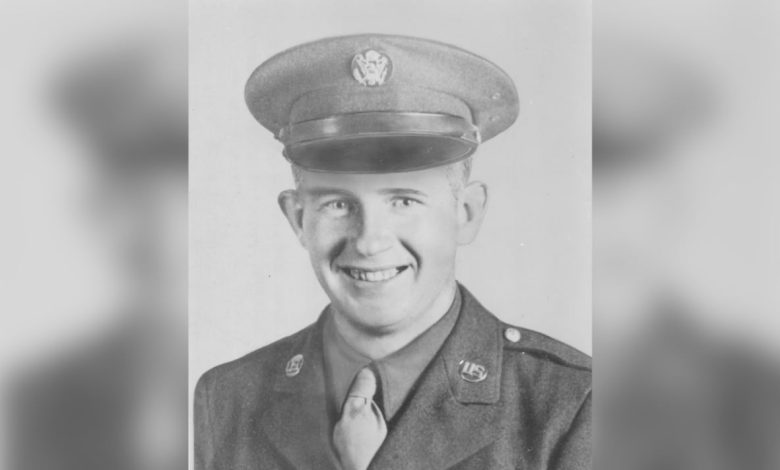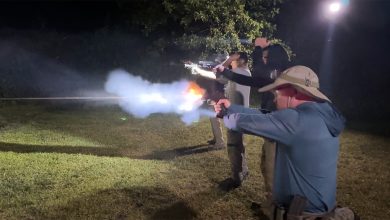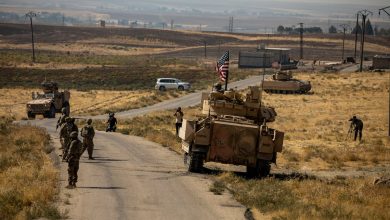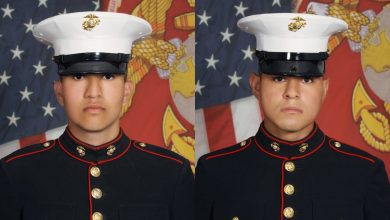How one GI’s sacrifice helped pave the Army’s way to Aachen, Germany

Medals for valor are often earned for outstanding individual service amid unfathomable circumstance. Oftentimes, however, those honored will insist that the action in which they distinguished themselves was a matter of teamwork.
A case in point might be seen in an Oct. 12, 1944 clash of platoons in the German town of Bardenberg, where the outcome of a singular soldier’s sacrifice hung in the balance, depending on his comrades-in-arms — and on his enemies.
In fall 1944, Bardenberg was just another of those objectives contributing to a strategically greater goal, in this case the city of Aachen, whose fall would mark the first seizure of German territory by the U.S. Army.
Tasked with assaulting Bardenberg was the 120th Regiment of the 30th Infantry Division. Dubbed “Old Hickory,” the activated National Guard unit had been in combat since its landing at Normandy on June 15. On Oct. 10 the Americans took the area in spite of the Germans converting cellars throughout the town into deadly pillboxes.
RELATED
The next day, however, elements of the 108th Panzer Brigade and the 60th Panzer Grenadier Regiment counterattacked, forcing the 120th to withdraw and shell the town. Undeterred, the 120th, bolstered by two battalions of troops from the 116th Regiment, 29th Infantry Division, fought their way back into Bardenberg, advancing two-thirds of the way through town before being stopped cold by a well-positioned German machine gun nest at a key intersection.
After repeated assaults, the company remained pinned down in a duel of infantry doctrines: the American combat team centered around M1 semiautomatic rifles and the German platoon centered around the deadly MG 42, supported by men firing bolt-action Mauser rifles and each carrying supplies of extra ammunition for the machine gun.
Amid the deadly gridlock, the voice of Staff Sgt. Jack Pendleton emerged. He was determined to break the impasse.
Born in Sentinel Butte, North Dakota, on March 31, 1918, the former lumberman of Yakima, Washington, enlisted in the Army in July 1942. He moved up the non-commissioned ranks quickly, but in Bardenberg he would put his stripes to the ultimate test.
Advancing 10 yards ahead of his squad, Pendleton halted them as they neared the intersection and then crawled off alone, through scant cover, toward the machine gun.
The Germans spotted him, and after advancing about 130 yards he was badly wounded in the leg.
Ordering his men to stay where they were, Pendleton gathered up some grenades and resumed his low crawl toward the enemy. He had made it to within 10 yards of the enemy platoon before the MG 42 team finally killed him.
That would probably have been the end of things, had it not been for Pendleton’s men. While he had been diverting the machine gunners’ attention, a second squad had been advancing. The men managed to rush the distracted enemy and eliminate them.
Quickly moving on from there to another intersection, they knocked out a second machine gun nest that had been coordinating with the first.
With that, the entire German defense began to crumble, allowing the 120th and 116th troops to secure the town. It had been a desperate contest of infantry weapons and tactics, but in the end the G.I. and his M1 Garand prevailed.
By Oct. 16, the advancing American forces linked up to secure Aachen.
Recognizing Pendleton’s sacrificial advance in the face of impossible odds as key to victory, his company bore witness toward his being posthumously awarded the Medal of Honor, which his mother received on April 6, 1945.
On April 28, 1948, the cargo ship USNS Jack J. Pendleton (T-AK-276) was launched in his honor. His body was ultimately laid to rest in Tahoma Cemetery, Yakima.
While some acts of valor are solo affairs, it was the remaining troops of Company I, 120th Infantry, whose follow-up ensured Jack Pendleton did not die in vain — and whose testimony ensured his place among the U.S. Army’s pantheon of heroes.
Read the full article here




![5 Guns You Should NEVER Sell in 2025 [You’ll Regret It Later] 5 Guns You Should NEVER Sell in 2025 [You’ll Regret It Later]](https://tacticalgunstores.com/wp-content/uploads/2025/04/1745048130_maxresdefault-390x220.jpg)


